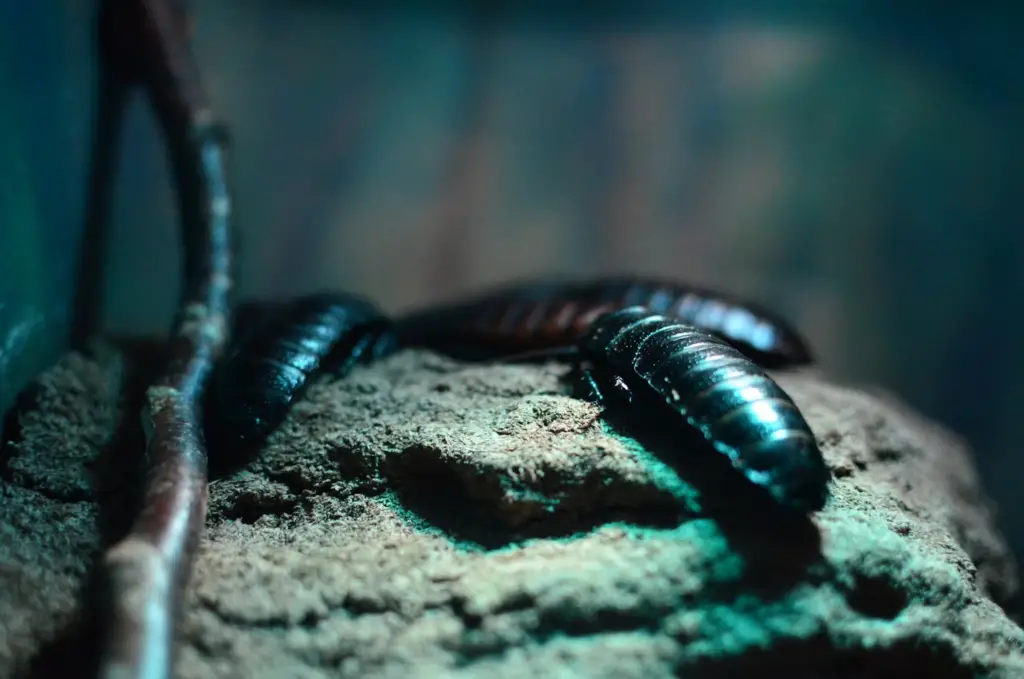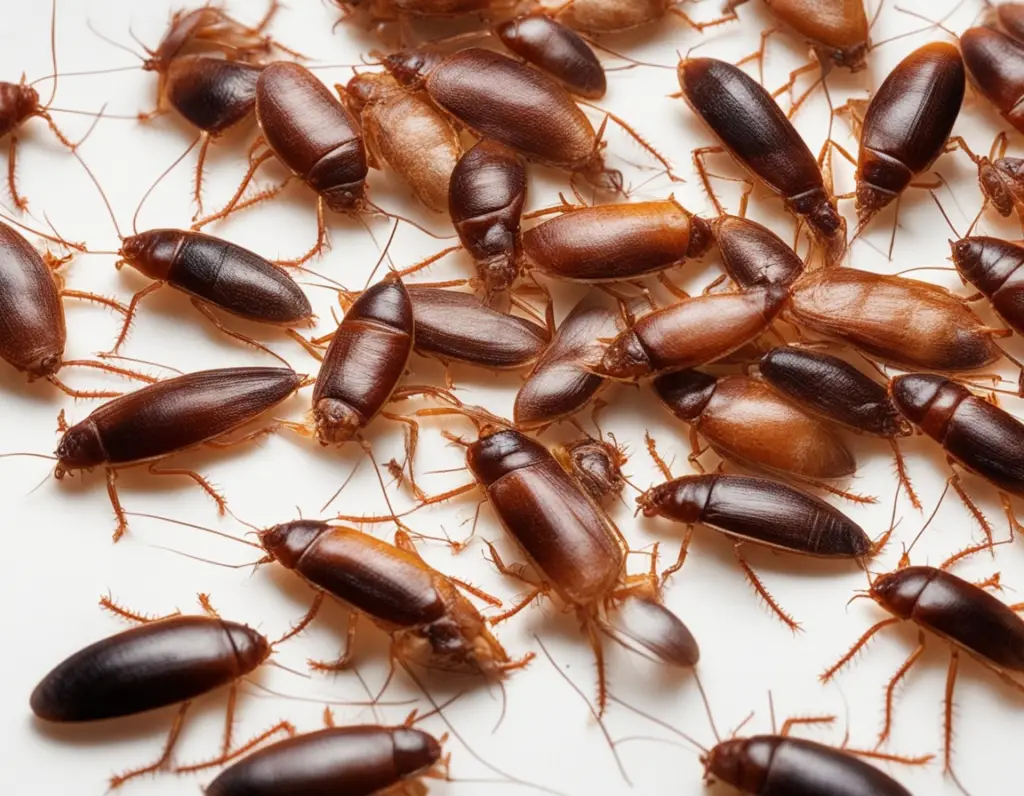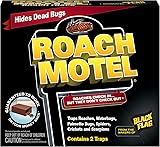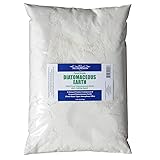Pest Lockdown
Are Cockroaches Common in South Carolina? Brace Yourself!
If you’re moving to South Carolina or already live in the beautiful Palmetto State, you might be wondering about the creepy crawlies that share the environment. And let’s face it, cockroaches are a concern for many people. So, the question arises: are cockroaches common in South Carolina?
The answer, unfortunately for those with entomophobia (fear of insects), is a resounding yes. South Carolina’s warm, humid climate provides the perfect breeding ground for these resilient pests.
This article dives deep into the world of South Carolina cockroaches, exploring the different species you might encounter, why they’re so common, and most importantly, how to keep them out of your home.

The Unwanted Guests: Common Cockroach Species in South Carolina
South Carolina plays host to several cockroach species, each with its own unique characteristics and preferred habitats. Here are the three most common ones you’re likely to meet:
The Palmetto Bug (Smoky Brown Cockroach)
South Carolina’s unofficial mascot (though some might argue!), the Palmetto bug is the largest cockroach species found in the state, reaching nearly 2 inches in length. These dark brown insects favor warm, moist environments and are often seen outdoors around buildings and landscaping. While not as quick as their smaller cousins, they can still give you a fright with their size and sudden scurries.
The German Cockroach
This smaller (around half an inch) light brown to tan cockroach is a notorious invader of homes and businesses. German cockroaches thrive in kitchens and bathrooms, attracted by moisture and food crumbs. Their rapid reproduction rate makes them a major concern if left unchecked.
The Brown-Banded Cockroach
Another smaller species (about half an inch long) with a distinctive light brown body and dark banding across the back. Brown-banded cockroaches prefer warm, dry areas like electronics, cabinets, and attics. While not as common as the German cockroach indoors, they can still be a nuisance.
Why South Carolina is a Cockroach Paradise
Several factors contribute to South Carolina’s status as a cockroach haven:
- Warm Climate: Cockroaches are cold-blooded insects, meaning their activity level and reproduction are highly dependent on temperature. South Carolina’s warm summers provide ideal conditions for roaches to thrive year-round.
- Humidity: Most cockroach species require a moist environment to survive. The state’s high humidity levels, especially during the summer months, create a comfortable habitat for these insects.
- Abundant Food Sources: Unfortunately, human settlements often provide an unwitting buffet for cockroaches. Food scraps, crumbs, and spills in kitchens and bathrooms attract these scavengers. Leaky pipes and condensation can also create moisture sources that roaches find appealing.
- Natural Habitats: South Carolina’s diverse landscape, with its forests, swamps, and coastal areas, provides ample breeding grounds for roaches outdoors. These areas can act as reservoirs for cockroach populations that readily migrate indoors when conditions are favorable.

Signs You Might Have a Cockroach Problem
While you might not see them during the day (cockroaches are mostly nocturnal), there are telltale signs that could indicate a cockroach infestation:
- Sightings: Seeing live roaches, even just one, is a clear sign of an infestation.
- Droppings: Small, dark droppings resembling pepper flakes are a telltale sign of cockroach activity.
- Egg Casings: Cockroach egg casings look like tiny brown capsules and can be found in hidden areas like behind cabinets or under appliances.
- Musty Odor: A strong, musty odor can sometimes indicate a large cockroach infestation.
- Shed Skin: Cockroaches shed their exoskeletons as they grow. Finding shed skins can be a sign of an active population.
Don’t Panic! How to Keep Cockroaches Out
The good news is that there are effective ways to keep cockroaches out of your South Carolina home:
- Sanitation is Key: Practice good hygiene by keeping your kitchen and bathroom clean. Wipe down surfaces, sweep floors regularly, and don’t leave dirty dishes in the sink overnight. Store food in sealed containers and dispose of garbage promptly.
- Seal Entry Points: Caulk cracks around windows, doors, and pipes to prevent roaches from entering your home. Pay close attention to areas where utilities enter the building.
- Moisture Control: Fix leaky faucets and pipes. Use dehumidifiers in basements and crawlspaces to reduce moisture levels.
- Garbage Disposal: Keep garbage cans tightly sealed with lids. Empty them regularly and place them away from your house.
- Natural Deterrents: While not a guaranteed solution, some natural repellents like bay leaves, peppermint oil, or diatomaceous earth can be used as deterrents
- Professional Help: For a serious infestation, consider hiring a licensed pest control professional. They can identify the specific cockroach species, assess the extent of the problem, and implement a targeted treatment plan.

Living with Cockroaches in South Carolina: Prevention is Key
Cockroaches may be a common nuisance in South Carolina, but with proper preventative measures, you can significantly reduce your chances of encountering them. Here are some additional tips for long-term success:
- Be Mindful of Outdoor Areas: Keep your yard free of debris and overgrown vegetation, as these can attract roaches. Regularly trim bushes and trees away from your house to eliminate potential entry points.
- Vacuum Regularly: Vacuum carpets and rugs frequently, paying close attention to corners and edges where crumbs and debris might accumulate.
- Store Boxes Wisely: Don’t store cardboard boxes directly on the floor. Place them on shelves or elevate them with pallets to prevent roaches from hiding inside.
- Appliance Maintenance: Pay attention to the areas behind and underneath appliances like refrigerators and stoves. Clean up any spills or crumbs that might attract roaches.
Best Products to Kill Cockroaches in South Carolina
While prevention is the best long-term strategy for keeping cockroaches out, there are times when an infestation requires a more aggressive approach. Here’s a breakdown of some common over-the-counter products available in South Carolina to tackle a cockroach problem:
Baits
Pros: Cockroach baiting is a popular choice for cockroach control as baits are relatively safe for use around children and pets (when used as directed). They contain a slow-acting poison that attracts roaches, who then ingest it and return to their nest, ultimately killing other roaches that come into contact with the poisoned individual. Popular brands include Avert Cockroach Bait, Combat Max Gel, and TerraGuard Roach Bait Stations.
Cons: Baits can take some time to work (up to a few weeks) as roaches need to consume the bait and share it with others in the colony. They may not be effective for large infestations.
Sale
Maxforce FC Magnum Roach Gel Bait (Two 33g Tubes)
- For use in: indoors or outdoors, in commercial or residential areas. Keep tightly capped and use within 2 years.
- Application: Do not spray near baits, do not use heavy detergents or cleaners, or do not use in very dusty area.
- Gel will dry out and get a dry skin on top but roaches will still eat it up to a year. However, if contaminated or gone, reapply.
- Pet safe: yes, when used as directed ALWAYS READ THE LABEL BEFORE USE!!
Sprays
Pros: Sprays offer a quicker knockdown effect for adult roaches. They are useful for targeting specific areas where roaches have been spotted. Popular brands include Hot Shot Cockroach & Ant Killer, Ortho Home Defense Insect Killer Aerosol, and Raid Cockroach Killer Spray.
Cons: Sprays may not be effective against eggs or hidden roaches. They can also be hazardous if inhaled or if they come into contact with skin or pets. Use caution and proper ventilation when using sprays indoors.
- KILLS ON CONTACT: Hot Shot Fogger With Odor Neutralizer kills on contact and controls heavy infestations – and keeps killing for up to 2 months.
- KILLS HIDDEN BUGS: Creates a fine, penetrating mist that reaches deep into cracks and crevices to kill the bugs you see and kill the bugs you don’t see.
- WHERE TO USE: Use in enclosed spaces such as apartments, attics, basements, barns, boat cabins, cabins, campers, crawl spaces, garages, homes, households, sheds, storage areas and trailers.
- NON-STAINING: This clear, non-staining formula won’t leave a wet, messy residue.
- EACH CAN COVERS 2,000 CU FT: Treats 2,000 cubic feet of unobstructed space
Traps
Pros: Traps are a non-chemical option for catching and killing roaches. Sticky traps capture roaches as they walk over them. Other traps lure roaches in with bait and then drown them. Popular brands include Victor Roach Sticky Traps and Trapper Roach Bait Traps. Alternatively, you may consider pheromone traps which work by releasing chemical signals that draw roaches into the trap.
Cons: Traps may not be effective for large infestations and need to be replaced regularly as they fill up. They can also be unsightly.
Black Flag Roach Motel Insect Trap, 12-Pack 12 Pack Trap
- EFFECTIVE CONTROL: Traps roaches, waterbugs; Palmetto bugs; spiders; crickets and scorpions
- HIDES DEAD BUGS: Conceals dead insects – just throw trap away when full
- PESTICIDE FREE: Contains no pesticides and no pesticide fumes or odors
- ATTRACTS ROACHES: Special lure attracts roaches into the trap; where they become stuck to the glue surface
- GUARANTEED: Guaranteed to work or your money back – see product label for details
Diatomaceous Earth (DE)
Pros: DE is a natural powder made from fossilized algae. It works by dehydrating roaches’ exoskeletons, causing them to die. It’s relatively safe for children and pets when used as directed.
Cons: DE can be irritating to the eyes and lungs if inhaled. It may not be as effective for large infestations and needs to be reapplied regularly, especially in areas with high moisture.
Food Grade Diatomaceous Earth 5 lb.
- 100% Freshwater Diatomaceous Earth with absolutely no additives or fillers
- Mined in the USA – Our pure white food grade diatomaceous earth is mined in Nevada
- Packaged professionally in stainless steel machinery on a dedicated line
- Use this to Refill our 1 and 3 Lb. Jars
- Sealed Air Tight Bags
Choosing the Right Product
The best product for your situation depends on the severity of the infestation, the specific type of cockroach, and your comfort level with using chemicals.
- For mild infestations: Baits or traps might be a good starting point.
- For larger infestations: A combination of baits, sprays, and professional help might be necessary.
Remember: It’s crucial to read and follow all label instructions for any product you choose. Consider consulting with a pest control professional for guidance on selecting the most effective and safe solution for your particular situation.
Cockroaches and Health Concerns
While not typically aggressive, cockroaches can carry bacteria and allergens that can trigger asthma attacks or allergic reactions in some people. Additionally, their presence can be a source of stress and anxiety for those with entomophobia.
If you suspect a cockroach infestation, it’s crucial to address the issue promptly to minimize health risks and maintain a comfortable living environment.
Final Thoughts on Cockroaches in South Carolina
Cockroaches are a prevalent reality in South Carolina. However, by understanding their habits, preferred environments, and implementing preventative measures, you can effectively keep them at bay. Remember, vigilance and proactive steps are key to keeping your home cockroach-free, despite how common cockroaches are in South Carolina.
Last update on 2024-06-15 / Affiliate links / Images from Amazon Product Advertising API. Please note that this page contains affiliate links, and we may make a commission from any purchases made through these links, at no additional cost to you.




